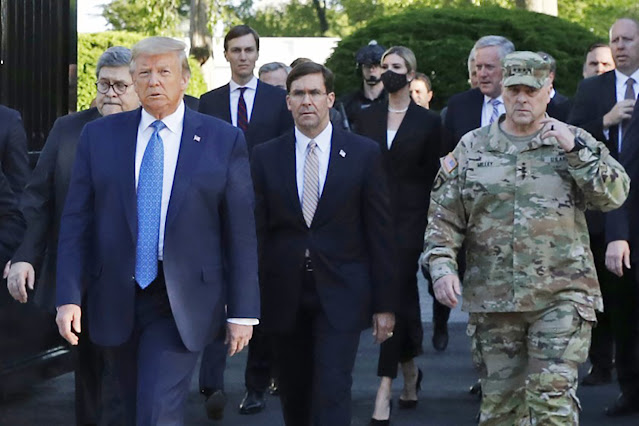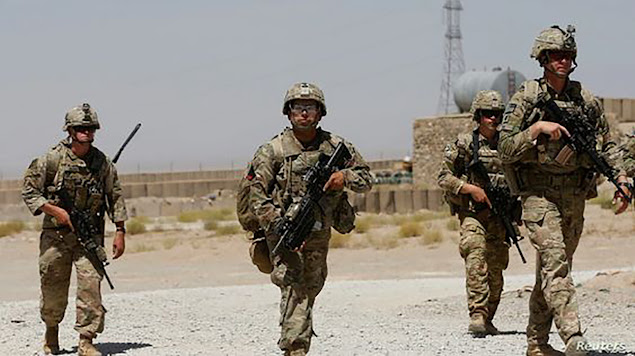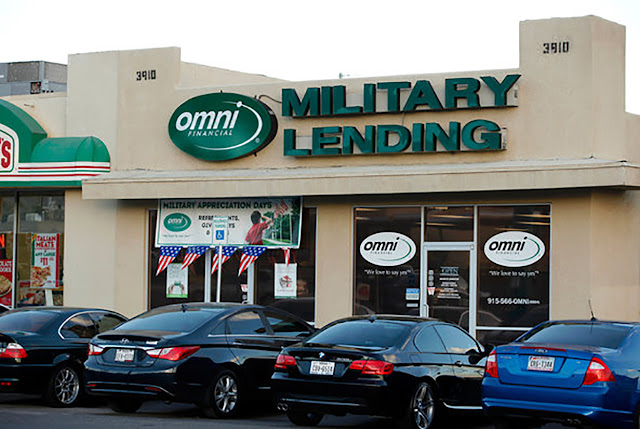Every Veterans Day, as a nation we’re supposed to pause. We’re supposed remember the many ways that veterans have never failed to serve our nation, when we called on them. But, especially on this Veterans Day, I worry: have we failed them?
Personal connections
I’ve never served in the armed forces, but service members and veterans have had a place in my heart for a long time. My father is a World War II Navy vet. He was one of the last men off of the USS St. Lo aircraft carrier, after a kamikaze sank it during the Battle of Leyte Gulf in 1944.
My first beat as a student journalist was the Veterans Club at my alma mater, the university now known as Missouri State University. That was during the Vietnam War, so veterans weren’t excessively popular at the time, but I tried to represent them fairly. They eventually voted me the Vets Club Sweetheart (how’s that for unbiased journalistic rigor?).
The men of my generation
My brother-in-law Warren C. Norwood, our “Honorary third Weird Sister” of Weird Sisters Publishing, served in Vietnam. It changed his life. As my sister G. S. Norwood puts it, “Warren was proud of his service but didn’t recommend it to others. He went in as a born again Baptist, went through an atheist period before becoming a Buddhist by the time he came home from Nam.”
My Beloved is a longtime employee of the Kansas City VA Medical Center. My immediate family’s livelihood, for more than four decades, has depended on service to veterans.
Blogging through the Veterans Days
 |
| We remember. But have we failed them? Image courtesy of the City of Coronado, CA. |
So, let the record show that I care about veterans. But as a country, have we failed them? Some of those worries came up in earlier posts.
Last year on Veterans Day, I blogged about the price of veterans’ service. In 2018, the centennial of the Armistice was a can’t-miss opportunity to look back. But the year before that I again echoed worries about the respect that we pay. Is it enough? Or have we failed them?
My 2016 Veterans Day post is one of my most popular by far. It tried to answer the question of “how can we thank them?” with three suggestions. But the acts of individuals—although they can be powerful—ultimately are not enough.
As my sister G. put it, “we owe our soldiers more than just thanks for their service. If we ask people to volunteer to serve their country we need to make sure it’s a worthy cause and we need to take care of them when they come home. They are not disposable.”
Have we failed them?
Before anyone ends up a veteran, they have to serve active duty. And active duty is fraught with needless difficulty—in addition to all the hostile action one may see. Recent uses (or threatened uses) of the military by President Trump have placed our armed services in a bad position.
Although Chairman of the Joint Chiefs of Staff General Mark Milly accompanied Trump to his infamous photo op at St. John’s Episcopal Church in June, the general later apologized. “I should not have been there,” he said. “My presence in that moment and in that environment created a perception of the military involved in domestic politics.”
 |
| President Trump walks to St. John’s Episcopal Church on June 1 with Atty. Gen. William Barr, Defense Secretary John Esper and Gen. Mark Milley. Image courtesy of Associated Press / Patrick Semansky, via the LA Times. |
2020 protests
Sen. Tom Udall (D-NM) said this summer, of Trump’s plan to call out National Guardsmen to counter demonstrations: “The American military should not be the president’s tool . . . to suppress Americans’ First Amendment rights.”
I blogged earlier this year about frightening actions by unmarked, apparently-Federal agents in Portland. These turned out to be from Customs and Border Protection, not the National Guard.
A Russian bounty?
For most of the summer we worried about intelligence reports that the Russians had offered the Taliban a bounty for American and UK soldiers killed in Afghanistan.
The President claimed no knowledge of it, although it was widely reported. Later he called it a “made up Fake News Media Hoax started to slander me & the Republican Party.” (unfortunately, given the President’s demonstrated trustworthiness when using such language, that convinced me it was probably true).
After a Pentagon probe, officials released a statement that they had “not been able to corroborate the existence of such a program.” While not a clear “no, that didn’t happen,” this did cast more credible doubt on the story.
Meanwhile, though, what must the troops in Afghanistan have been thinking?
 |
| US soldiers in Afghanistan’s Logar Provice, in 2018. Photo courtesy of Reuters/VOA. |
Military pay and other issues
Active-duty service members’ problems didn’t just start recently, however.
According to “The Military Wallet,” in recent years the pay for active duty military members has increased enough that those in the lower ranks no longer have to rely so much on food stamps or other assistance programs.
But in July 2019 NBC News found that making ends meet was still a widespread problem for military families. And that was before the Covid-19 pandemic sparked a recession reckoned to be the “worst since World War II.”
More hazards for military families
Low pay brings with it the plague of payday lenders, a predatory industry which somehow is still legal. In 2015, a brief furor erupted over the news that payday lenders often located their stores near military bases, and targeted military service members and their families at twice the rate of civilians.
The Military Lending Act (MLA) pushed back. Passed and signed during the Obama Administration, it provided short-lived protections. By 2017 the Trump Administration eased regulations on payday lenders targeting military family members, to circumvent the MLA. And in 2018 the Administration had so weakened the CFPB (Consumer Financial Protection Bureau, which had oversight responsibility) that the bureau’s leader, Richard Cordray, resigned with a fiery letter of protest.
 |
| Blatant targeting near Fort Bliss in El Paso, TX. Have we failed them? Interest rates on short term loans can reach as much as 80 percent. Photo by Ivan Pierre Aguirre/The New York Times. |
In 2011, I blogged about reports of substandard school buildings on military bases, and wondered how sincere all the then-in-vogue flag-waving truly was. Unfortunately, all too little has changed, from the look of things.
But once they leave active duty are they okay?
Let’s be clear. Many veterans thrive after their military service. Many use skills they developed in the service to find jobs in the private sector. Military service has enhanced the résumés of many illustrious business, professional, and political leaders.
My husband’s career is testament to the VA’s health care mission (although that hasn’t always been carried out well). Many veterans, such as my father, can comfortably rely on the lifelong health care that veterans (especially Purple Heart veterans like Dad) are entitled to receive.
My father has been supplied with glasses and hearing aids, prescription medicines, a wheelchair, and care by a home health aide from the VA. His medical care has been excellent, and he’s always greeted respectfully. I wish all veterans could have the same kind of experience at VA facilities.
 |
| The Kansas City VA Medical Center has always treated my family well. Photo courtesy Kansas City VA Medical Center, via KSHB 41 Action News. |
However
I can’t close with my father’s positive experience. You probably figured a “however” was coming. Unfortunately, there are several “howevers,” and they leave the question of “Have we failed them?” very much still in play.
For years there’s been a steady churn of reports of sexual assault and harassment in our armed forces. It’s risen from murmurs to a roar in the wake of the #MeToo Movement, but as recently as August many observers agreed the system is still badly broken.
“These cases are not handled properly and the follow-up care for the victim is not right,” says Kayla Kight, who was sexually assaulted while serving as an Army nurse. A victim who served in the Navy, Sasha Georgiades, says, “It's a problem that's deep in the culture of the military.” Women are targeted at a much higher rate, but men by the thousands suffer, too.
Homeless and/or suicidal
While the numbers of homeless veterans has been decreasing in recent years, at last count approximately “40,000 veterans are without shelter in the US on any given night,” according to a September 2020 report from Policy Advice. Many fear the Covid-19 pandemic and the recession it caused could create another upsurge in homelessness among veterans.
And so far nothing has stemmed the horrific number of suicides among veterans. In March the head of the nonpartisan advocacy group American Veterans called the mental health system “horribly broken.” Now that suicides are rising in the general public, presumably as a response to the pandemic, the picture for suicidal vets could be even worse.
It’s a hard problem to solve, even without the pandemic. During hearings then, Rep. Phil Roe (R-TN), who is both a veteran and a physician, pointed out that 70% of veterans who commit suicide never sought help from the VA. “How do you identify those veterans who never show up?” he asked. Good question.
Unfortunately, it’s not as hard to find them after it’s too late.
So, um . . . happy Veterans Day?
By all means, please celebrate Veterans Day. Display your flag. Thank a veteran (or give them a hug, if you know them that well). We owe them our respect for their service. We owe them our honor for the (sometimes many) prices they paid and may still be paying. And we certainly owe them far better treatment than they all too often receive.
Have we failed them? I fear the overall answer is yes. So once we’ve folded up the flag and spoken our respect, we need to get to work.
- Call or write our representatives.
- Advocate for better treatment, both of active-duty service members, and of veterans.
- Donate to reputable veterans’ charitable organizations, as we can.
When we fail veterans, we dishonor ourselves and our country.
IMAGE CREDITS:
Many thanks to Col. Tannenbusch via You Tube, who posted the video “Kamikaze versus USS St. Lo” for us to see. I also am grateful to the city of Coronado, CA, for the Veterans Day graphic. I appreciate the AP, photographer Patrick Semansky, and the LA Times, for the photo of Mr. Trump’s Lafayette Square promenade, and Reuters and VOA, for the photo of the US soldiers in Afghanistan in 2018. Thanks very much to photographer Ivan Pierre Aguirre and The New York Times for the photo of the “Military Lending” store near El Paso, TX, and the Kansas City VA Medical Center, via KSHB 41 Action News, for the photo of the VA Hospital in Kansas City, MO.








